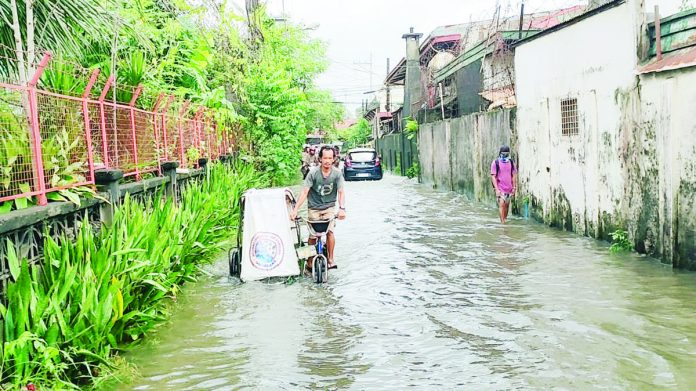
ILOILO – With the flooding caused by heavy rains, the public is reminded anew to be cautious against leptospirosis.
As of July 22 this year, or morbidity week 29, the province had 121 leptospirosis cases with five deaths — 68.1 percent higher than the 72 cases with five deaths in the same morbidity week last year.
Leptospirosis is a bacterial disease. One becomes infected through direct contact with the urine of infected animals or with a urine-contaminated environment. The bacteria enter the body through cuts or abrasions on the skin or the mucous membranes of the mouth, nose and eyes.
In the early stages of the disease, symptoms include high fever, severe headache, muscle pain, chills, redness of the eyes, abdominal pain, jaundice, hemorrhages in the skin and mucous membranes, vomiting, diarrhea, and rashes.
Data from the Iloilo Provincial Health Office (IPHO) showed the towns with the highest cases of leptospirosis in the province – Cabatuan (16 cases with one death), Barotac Nuevo (12), Pototan (11), Anilao (seven), Oton (six), Dingle (five), Santa Barbara (five), Leon (five with one death), and Dumangas (four).
The remaining cases were from the towns of San Enrique (four), Mina (three), Badiangan (three with one death), Carles (three with one death), Maasin (three), Miag-ao (three), Janiuay (three), Balasan (three with one death), San Miguel (three), Alimdoian (three), Lemery (two), Dueñas (two), Tigbauan (two), Tubungan (two), New Lucena, Barotac Viejo, Banate, Calinog, Batad, Zarraga, Estancia, Concepcion, Pavia, San Joaquin, and San Dionisio (one case each).
“Nine na lang gid ka mga banwa sa probinsya wala sang report sang leptospirosis,” IPHO head Dr. Maria Socorro Colmenares-Quiñon said.
These were Ajuy, Bingawan, Guimbal, Igbaras, Lambunao, Leganes, Passi City, San Rafael, and Sara.
Quiñon reminded the public of the following measures against leptospirosis:
* If possible, avoid wading in floodwater to avoid getting infected with bacterial disease, especially if one has an open wound on the foot.
* If necessary, wear boots so the wound doesn’t get exposed in dirty water, and wash it with clean water and mist.
* Farmers submerged in floodwaters or paddies and have developed fever are urged to go to the Rural Health Unit to ask for prophylaxis or antibiotics.
“With this onset sang rainy season, mangin careful naman kita sa leptospirosis, especially sa aton farmers kay sila gid ang prone nga ma-infect,” added Quiñon./PN



